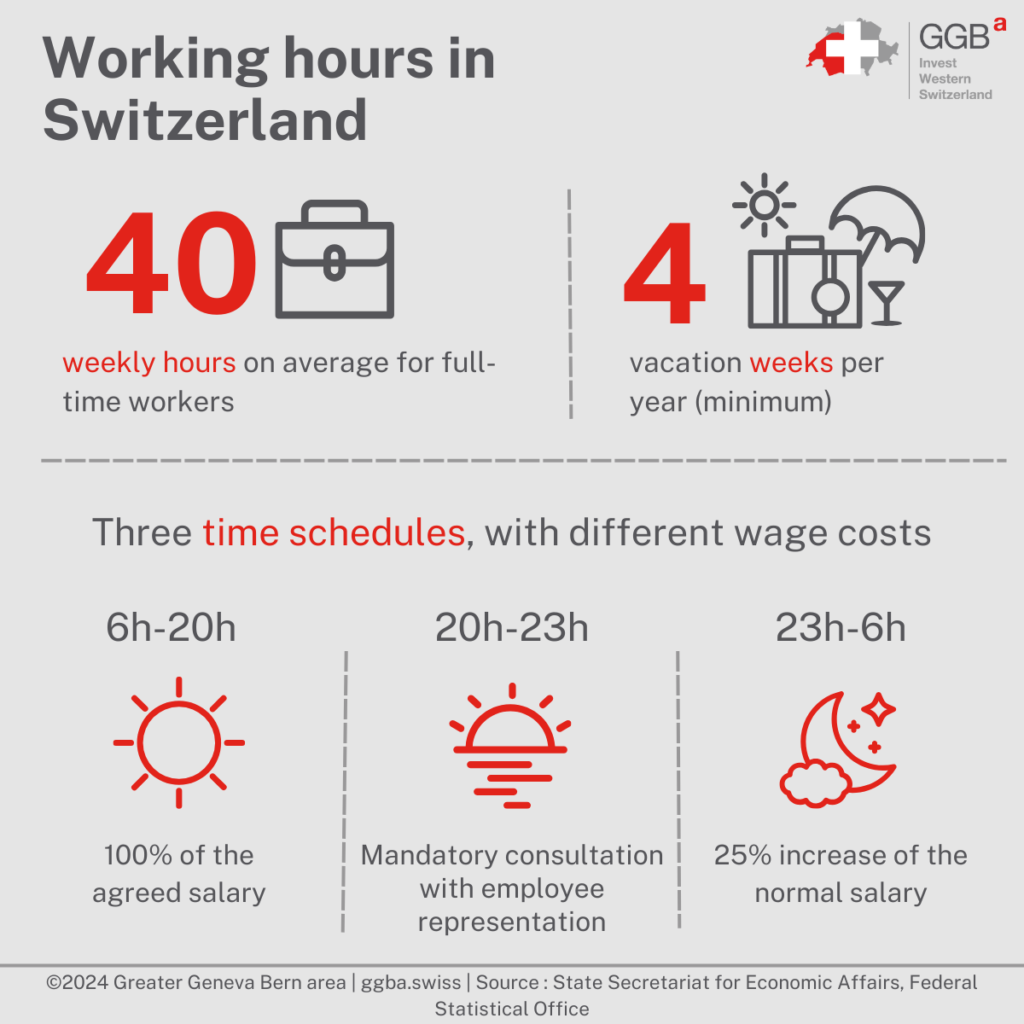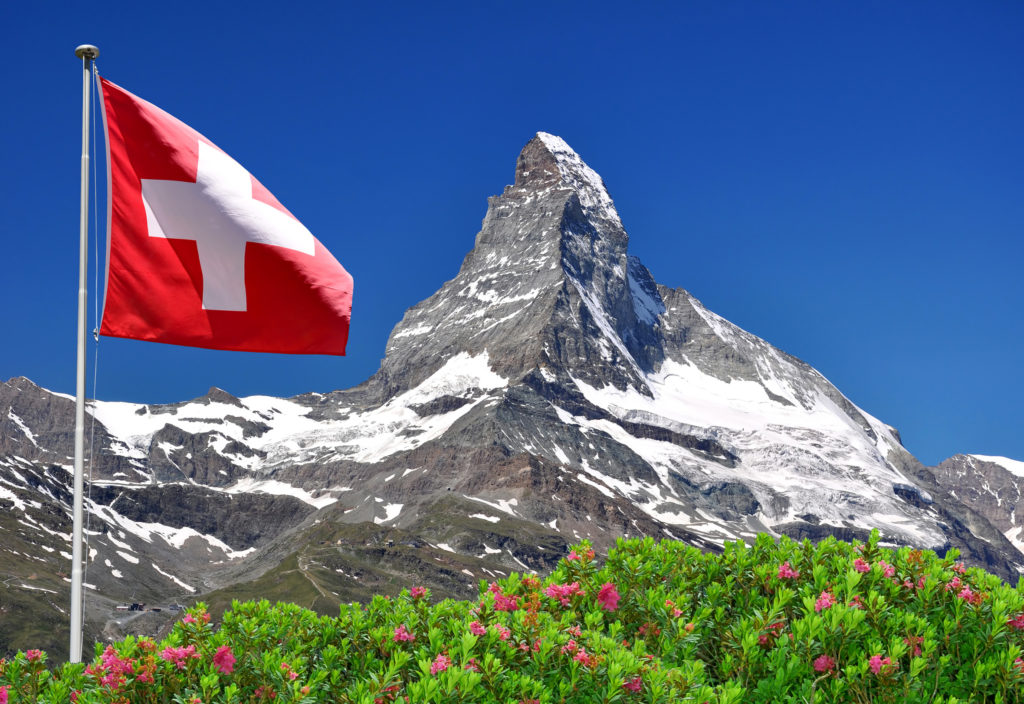
Working in Switzerland: working hours and days off

The laws regarding working hours and vacations in Switzerland are known to be advantageous for employers. Knowing the main elements of these laws allows to maximize the advantages of a location in Switzerland.
Working hours
The normal working hours within a company are determined by the employment contract or collective bargaining agreement and generally vary between 40 and 44 hours. The maximum working time is 45 hours per week in industry (this also applies to administrative, technical and sales staff in large retail companies) and 50 hours in the trade sector. It is important to understand the difference between normal and maximum working hours in order to determine when overtime and additional work apply.
Extra work
When an individual works beyond their regularly scheduled hours but not exceeding the maximum limit, it is referred to as extra work. The employee is obliged to perform these hours to the extent that they can do so and that the rules of good faith allow to ask them to do so. If the overtime is not compensated by time off within 14 weeks (or within the period agreed with the employer, which can be up to 12 months), it must be compensated by an additional 25% of the salary. According to the labor law, overtime work cannot exceed two hours per day, 170 hours (for a 45-hour week) or 140 hours (for a 50-hour week) per calendar year.
Overtime
When the maximum duration of the work week is exceeded, it is called overtime. By law, overtime must be compensated with an additional 25% of the salary. For employees with a higher salary, it is often possible to use their regular salary as compensation for overtime. However, it is possible, on the basis of an agreement between the employer and the employee, to exclude in writing the payment of a supplement and to compensate for the overtime with a leave of at least the same duration.
Unlike in many European countries, in Switzerland, it is not mandatory to have the approval of a workers’ representative for performing overtime or extra work. It is also not necessary to have an official authorization if one does not exceed the mentioned limits of overtime work.
Day, evening and night work
Work performed between 6:00 a.m. and 8:00 p.m. is considered daytime work and work performed between 8:00 p.m. and 11:00 p.m. is considered evening work. Both types of activities are not subject to authorization. Evening work can only be implemented by the employer after consulting with the workers’ representation within the company, or if that is not possible, with the workers themselves. The working time of each worker must be within a period of fourteen hours, including breaks and overtime.
Night work is subject to authorization (except for companies subject to special agreements). The employer must grant a 25% wage increase to the employee who performs night work on a temporary basis. In the case of regular or periodic night work, the worker is entitled to time off equivalent to 10% of the duration of such work. This compensatory time off must be granted within one year.
Sunday work and work on public holidays
The hours worked between Saturday 11 p.m. and Sunday 11 p.m. are considered as Sunday work. With the exception of special provisions for certain categories of companies, Sunday work also requires authorization. In Switzerland, only one public holiday is considered a Sunday: August 1st (national holiday). The cantons may treat up to eight other public holidays per year as Sundays. A distinction must be made between official days of rest recognized by law: although the same rules as for public holidays assimilated to Sundays generally apply to these days, the legal bases have been set by the canton or municipality and may therefore differ in some respects from the regulations for Sundays.
Vacations and public holidays
Every worker in Switzerland is entitled to at least four weeks of paid vacation per year (young people up to the age of 20: five weeks), two of which must be consecutive. Part-time workers are also entitled to paid vacations in proportion to the time worked. Vacation days must be taken and cannot be compensated by financial benefits. There is no additional vacation entitlement by law. During vacation, the salary is paid in the same way as during work. There is no additional vacation allowance in Switzerland, as is often provided for in tariff agreements in EU countries.
As a general rule, workers are also entitled to nine statutory holidays. Because of the cantons’ power to set cantonal rest days, the number of public holidays may be higher in some cantons. The only public holidays common to the whole country are August 1, New Year’s Day, Ascension Day and Christmas Day (December 25): all others vary by canton. Employees are also entitled to days off in case of marriage, death, moving house, visit to the dentist, etc. Their number is not prescribed by law.

In a nutshell: Switzerland is known for its efficient and productive work culture, as seen in the Swiss people’s decision to reject the proposal for a six-week vacation in 2012. Moreover, thanks to the loose legal framework regarding labor law, entrepreneurs can focus on their business rather than worrying about legal uncertainties.
Greater Geneva Bern area (GGBa) is the investment promotion agency for Western Switzerland. If you would like to know more about working hours in Switzerland or about other subjects that could help you in your implantation, contact us.
Our articles “Why Switzerland” can answer the questions you have.

